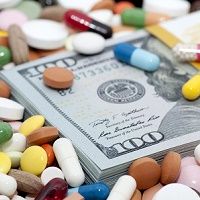Article
New Treatments Produce Spike in Hepatitis C Drug Spending
Author(s):
The amount of money paid for expensive new hepatitis C drug treatments skyrocketed in the first quarter of 2015, according to a report released by Express Scripts.

The amount of money paid for expensive new hepatitis C drug treatments skyrocketed in the first quarter of 2015, according to a report released by Express Scripts.
The prescription drugs benefits management company said spending for hepatitis C drugs for patients in an exchange plan shot up 96% in the first quarter of 2015, compared to the same time last year. The findings are part of the Express Scripts Exchange Pulse report that compares annual use of prescription medicine among people enrolled in exchange plans to those enrolled in a traditional health plan.
The good news is that patients newly enrolled into exchange plans during the first three months of this year were healthier and spent less money on prescription medicine than enrollees inthe first quarter of 2014. That helps balance risk among the exchange plan’s pool of insured customers, according to a release that highlights the report’s key findings.
However, researchers who evaluatedexchange plan medication trends found that spending on costly specialty medicines spiked 24% compared to an 8% increase with traditional plans, due in large part to costly hepatitis C drugs, according to the report. Researchers based their analysis on more than 100 million de-identified pharmacy claims administered by Express Scripts and generated over a 15-month period from 2014 to 2015.
"While it is encouraging to see data that suggests healthier Americans are enrolling in exchange plans, the research reminds us that many of these patients use this benefit to manage serious, chronic illnesses," Julie Huppert, vice president, healthcare reform at Express Scripts said in the statement.
<!--page-->
Hepatitis C is a blood-borne virus that if left untreated can lead to chronic infection and serious liver damage. Sovaldi and other newly approved drugs to treat the disease have caused much debate because while they work faster and have better cure rates than traditional treatments, the cost is not cheap, especially in the US where prices are not regulated.
Data from the 15-month analysis indicates that 42% of all pharmacy spending went to pay for specialty medications such as hepatitis C and HIV drug therapy. That increased specialty drug spending in part led to 16% higher costs among exchange plans — per member per month- compared to traditional health plans, states the release.
The report states that the two most expensive specialty drugs for exchange plan members were Harvoni and Sovaldi — two hepatitis C drugs sold by California based drug maker Gilead Sciences. Plans that take part in a hepatitis C value program offered by Express Scripts can expect to pay less in this drug class in 2015, according to the release.
Late last year, Express Scripts, which manages prescription benefits for millions of patients, announced an exclusive deal with drug maker AbbVie Inc. to prescribe Viekira Pak, one of the newly approved regimen’s for treatment of genotype1 chronic hepatitis C. The two companies reportedly struck a deal that would offer the drug regimen at an undisclosed discount.
The report also noted that early data indicates that more patients in exchange plans fail to take medicine as prescribed. Medication non-adherence was high among people taking drugs for diabetes, high blood pressure, hepatitis C and HIV, four out of the 10 costliest conditions covered by exchange plans, according to the release.





